Monthly Archives: December 2023
 Sometimes, there can be a rare phenomenon that happens by chance, but unlike the phenomenon of twins being born on different days, the phenomenon that took place on December 31, 1899, while not totally planned, had to be helped just a little bit. On that night, the last night of the year, the passenger steamer, SS Warrimoo was quietly making its way through the dark waters of the mid Pacific Ocean on its way from Vancouver, Canada to Australia. In the days without GPS, the navigation was calculated by the stars. It was very accurate. That night, the navigator had just finished working out a star fix and brought the results to Captain John DS Phillips. The Warrimoo’s position was LAT 0º 31′ N and LONG 179 30′ W. The date was December 31, 1899. First mate Payton broke in saying, “Know what this means? We’re only a few miles from the intersection of the Equator and the International Date Line.” At first thought many of us would not see the significance of that, but Captain Phillips saw it, and he was just “prankish” enough to take full advantage of the opportunity for achieving the “navigational freak of a lifetime.”
Sometimes, there can be a rare phenomenon that happens by chance, but unlike the phenomenon of twins being born on different days, the phenomenon that took place on December 31, 1899, while not totally planned, had to be helped just a little bit. On that night, the last night of the year, the passenger steamer, SS Warrimoo was quietly making its way through the dark waters of the mid Pacific Ocean on its way from Vancouver, Canada to Australia. In the days without GPS, the navigation was calculated by the stars. It was very accurate. That night, the navigator had just finished working out a star fix and brought the results to Captain John DS Phillips. The Warrimoo’s position was LAT 0º 31′ N and LONG 179 30′ W. The date was December 31, 1899. First mate Payton broke in saying, “Know what this means? We’re only a few miles from the intersection of the Equator and the International Date Line.” At first thought many of us would not see the significance of that, but Captain Phillips saw it, and he was just “prankish” enough to take full advantage of the opportunity for achieving the “navigational freak of a lifetime.”
Phillips called his navigators to the bridge to check and double check the ship’s position. It simply would not do for there to be any miscalculation. He changed course slightly so as to bear directly on his mark. Then, he adjusted the engine speed for perfect timing. The calm weather and clear night worked in his favor. With determined and careful maneuvering, the SS Warrimoo was in perfect position at midnight. The ship now sat on the Equator at exactly the point where it crossed the International Date Line! This seems like a minor thing, but  the consequences of this bizarre position were actually many. This put the forward part (bow) of the ship was in the Southern Hemisphere and in the middle of summer; the rear (stern) was in the Northern Hemisphere and in the middle of winter; the date in the aft part of the ship was December 31, 1899; in the bow (forward) part it was January 1, 1900. They had managed to place the ship not only in two different days, two different months, two different years, and two different seasons…but, in two different centuries…all at the same time!! Amazing, and unlikely to ever happen again, unless it was specifically planned.
the consequences of this bizarre position were actually many. This put the forward part (bow) of the ship was in the Southern Hemisphere and in the middle of summer; the rear (stern) was in the Northern Hemisphere and in the middle of winter; the date in the aft part of the ship was December 31, 1899; in the bow (forward) part it was January 1, 1900. They had managed to place the ship not only in two different days, two different months, two different years, and two different seasons…but, in two different centuries…all at the same time!! Amazing, and unlikely to ever happen again, unless it was specifically planned.

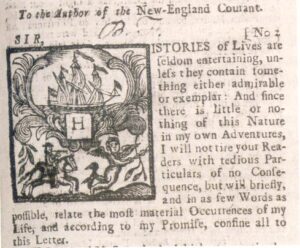 Out of the blue, in 1722, the readers of a paper published in Boston, called The Courant, were treated to and fascinated by letters that were sent in by a widow with an razor-sharp wit and a gift for sarcasm. Her name was Mrs Silence Dogood. Mrs Dogood had an unusual sense of humor. She liked to poke fun at such illustrious institutions such as Harvard. For that, many of her readers loved her and became avid followers. She wasn’t afraid to speak her mind, and she wasn’t afraid to call a spade a spade. She told it like it was, and she didn’t care what others thought of her.
Out of the blue, in 1722, the readers of a paper published in Boston, called The Courant, were treated to and fascinated by letters that were sent in by a widow with an razor-sharp wit and a gift for sarcasm. Her name was Mrs Silence Dogood. Mrs Dogood had an unusual sense of humor. She liked to poke fun at such illustrious institutions such as Harvard. For that, many of her readers loved her and became avid followers. She wasn’t afraid to speak her mind, and she wasn’t afraid to call a spade a spade. She told it like it was, and she didn’t care what others thought of her.
So…just who was Mrs Dogood? Rumor had it that she was just an old widow woman who had been around long enough to have long lost any concern over what people thought of her. Maybe her many years of life had given her insight that no one else had. I remember reading Ann Lander’s column when I was a girl and a young married woman. Her advise always seemed so wise. I remember a number of articles from various columnists, and there again, my thought was, “How did they know so much?” I was sure they must have multiple degrees. Of course, while they might have had a degree or two, that did not make them any smarter than the next guy…and this type of writing was usually more about logic and common sense, that learned skill. So, who was Mrs Silence Dogood? That is the question of the day.
The answer to that question will most likely shock you. The reality is that Mrs Silence Dogood was the pen name used by Benjamin Franklin. Now, while Benjamin Franklin was a very intelligent man, as we all know. the fact remains that at the time he was writing under the pen name of Mrs Silence Dogood, Franklin was a boy of just 16 years. He was too young to be taken seriously or to have any possibility of getting his writings published, so he came up with an ingenious solution. His goal was to have his work published in the New-England Courant…a newspaper founded and published by his brother James Franklin. He took this goal seriously, especially after he was denied several times when he tried to publish letters under his own name in the Courant. Mrs Silence Dogood wrote 14 letters, which were first printed in 1722, and can be read here.
At the time of the printing of those letters, Franklin worked as an apprentice in his older brother’s printing shop in Boston. Franklin was a boy who had yet to get something he wrote published, so at 16, and desperate to finally receive the respect and recognition he felt he justly deserved. His idea was to create the persona of a 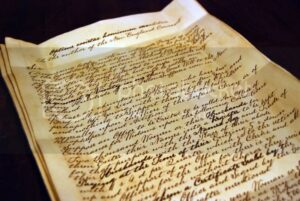
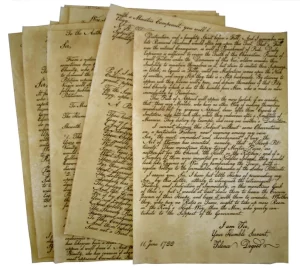 middle-aged widow named Silence Dogood. Once every two weeks, Franklin left a letter under the door of his brother’s printing shop. A total of 14 letters were sent. For months no one knew the identity of Mrs Dogood, but everyone was completely enthralled. Those letters were the talk of the town…even after they found out they were written by a 16-year-old Benjamin Franklin.
middle-aged widow named Silence Dogood. Once every two weeks, Franklin left a letter under the door of his brother’s printing shop. A total of 14 letters were sent. For months no one knew the identity of Mrs Dogood, but everyone was completely enthralled. Those letters were the talk of the town…even after they found out they were written by a 16-year-old Benjamin Franklin.
 Abraham Lincoln was a great president, one of the greatest, but while the presidency defined his life in our minds, it was only a small part of the sum total of his life. His presidency ran from 1861 to his assassination on April 14, 1865, and subsequent death on April 15, 1865. Nevertheless, Abraham Lincoln was an amazing president and brought this country out of a dark time in our history.
Abraham Lincoln was a great president, one of the greatest, but while the presidency defined his life in our minds, it was only a small part of the sum total of his life. His presidency ran from 1861 to his assassination on April 14, 1865, and subsequent death on April 15, 1865. Nevertheless, Abraham Lincoln was an amazing president and brought this country out of a dark time in our history.
Lincoln was a self-educated man, and he tried a number of occupations. One of them was bartending. It’s strange to think of President Lincoln as a licensed bartender. It’s not that there is anything wrong with bartending, and in fact, many American historical figures were involved in the alcohol industry. George Washington owned the largest whiskey distillery according to Mount Vernon’s official website, and according to Monticello’s website, Thomas Jefferson was also fascinated with beer brewing. Even Sam Adams, who was not a brewer, was involved in the industry, in that he made malt for the breweries. For his part, Lincoln, who would become the 16th president, opened up a bar called “Berry and Lincoln” with his friend William F Berry in New Salem, Illinois in 1833.
When Lincoln came home from serving in the Black Hawk War, which was the war between the United States and Native Americans, he didn’t really know what he wanted to do with the rest of his life. He thought about becoming a blacksmith, but then he reconnected with William Berry, who had been in his militia group. The two men hit it off, and eventually decided to open a general store in New Salem, Illinois. The store was called the Berry-Lincoln Grocery, and maybe it would have been better if this was as far as things went. At that time, stores were allowed to sell larger quantities of alcohol for drinking off-site. However, if they wanted their customers to be able to drink inside the sore, they would need to purchase a license. They were granted a tavern license which cost $7 in those days. Berry took charge of getting the license. They sold a variety of brandy flavors, including apple brandy, peach brandy, and even French brandy, among others. They also sold wine, rum, and two kinds of gin.
Lincoln wasn’t much interested in tending bar. He was more focused on serving as postmaster. So, it was decided that Barry would run the bar part of the store and Lincoln would run the store’s post office. For a time, the Berry-Lincoln Grocery did fine, but then things began to change. It turned out Berry was an alcoholic who took advantage of the store’s license to sell drinks. It gave him the ability to drink while working, and 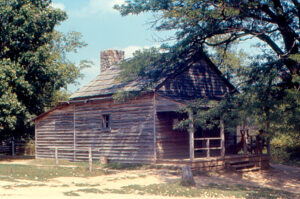 sometimes he was too drunk to function. So, Lincoln took more and more responsibility. Unfortunately, the whole situation led to the partners, taking on more debt. Eventually, Lincoln was done with the whole thing, and he sold his interest in the store to Berry in 1833. Just two years later, before Lincoln could be completely freed of the place, Berry died, leaving Lincoln to inherit the business’s debts. It was an awful situation, which was only resolved when Lincoln was elected to Congress in 1847, giving him enough of an income to clear the debts. Having had quite enough of the bartending/store owning industry, Lincoln became a lawyer and eventually a politician, which led to the great president we have all studied about, as well, of course, as his assassination.
sometimes he was too drunk to function. So, Lincoln took more and more responsibility. Unfortunately, the whole situation led to the partners, taking on more debt. Eventually, Lincoln was done with the whole thing, and he sold his interest in the store to Berry in 1833. Just two years later, before Lincoln could be completely freed of the place, Berry died, leaving Lincoln to inherit the business’s debts. It was an awful situation, which was only resolved when Lincoln was elected to Congress in 1847, giving him enough of an income to clear the debts. Having had quite enough of the bartending/store owning industry, Lincoln became a lawyer and eventually a politician, which led to the great president we have all studied about, as well, of course, as his assassination.
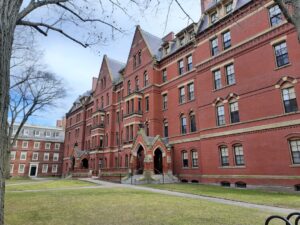
 Because I live in the United States, the history of my country doesn’t really go back beyond 1492, and even then, the buildings, institutions, cities, and such would seem pretty primitive compared to their “Old World” counterparts. As old as some of our buildings are, they are new compared to some of the “Old World” structures. The American education system had primitive beginnings to, and so it’s hard to think of the beginning of universities here, and yet, the oldest university in the continental United States is Harvard, which was established in 1636. That seem very old to me, but when compared to the oldest universities in the world, that is a baby university.
Because I live in the United States, the history of my country doesn’t really go back beyond 1492, and even then, the buildings, institutions, cities, and such would seem pretty primitive compared to their “Old World” counterparts. As old as some of our buildings are, they are new compared to some of the “Old World” structures. The American education system had primitive beginnings to, and so it’s hard to think of the beginning of universities here, and yet, the oldest university in the continental United States is Harvard, which was established in 1636. That seem very old to me, but when compared to the oldest universities in the world, that is a baby university.
The universities in the United States, were modeled after some of the universities in Europe, like the University of Oxford. The University of Oxford is older than the Aztec Empire, which is said to have originated in 1325. The University of Oxford first opened its doors to students all the way back in 1096, making it the oldest university 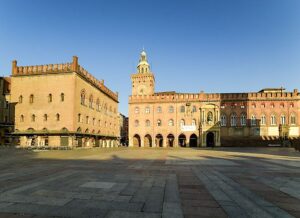 in the English-speaking world and the world’s second-oldest university in continuous operation. That seems an impossible date, but while 1096 is a very, very long time ago, the University of Oxford is not even the oldest university in the world. In fact, it is actually the fourth oldest university in the world. Still, it is quite prestigious. “Oxford has educated a wide range of notable alumni, including 30 prime ministers of the United Kingdom and many heads of state and government around the world. As of October 2022, 73 Nobel Prize laureates, 4 Fields Medalists, and 6 Turing Award winners have matriculated, worked, or held visiting fellowships at the University of Oxford, while its alumni have won 160 Olympic medals. Oxford is the home of numerous scholarships, including the Rhodes Scholarship, one of the oldest international graduate scholarship programs.” All that is to be expected for a university with such long standing.
in the English-speaking world and the world’s second-oldest university in continuous operation. That seems an impossible date, but while 1096 is a very, very long time ago, the University of Oxford is not even the oldest university in the world. In fact, it is actually the fourth oldest university in the world. Still, it is quite prestigious. “Oxford has educated a wide range of notable alumni, including 30 prime ministers of the United Kingdom and many heads of state and government around the world. As of October 2022, 73 Nobel Prize laureates, 4 Fields Medalists, and 6 Turing Award winners have matriculated, worked, or held visiting fellowships at the University of Oxford, while its alumni have won 160 Olympic medals. Oxford is the home of numerous scholarships, including the Rhodes Scholarship, one of the oldest international graduate scholarship programs.” All that is to be expected for a university with such long standing.
The other three oldest universities are the University of Bologna, a public research university in Bologna, Italy, founded in 1088 at number three; the Al-Azhar University, a public university in Cairo, Egypt, founded in 970 at number two; and the oldest university in the world, the University of al-Qarawiyyin, located in Fes, Morocco, founded in 859. It amazes me that there could be universities that have been around for that many years. I 
 think that mostly, it’s not the institutions of higher learning that amaze me, but more the structures that held them and the institutions of people who ran them. I think that there has always been a desire to learn more, so the universities themselves make perfect sense, but the buildings built so long ago that have somehow managed to remain standing, while so many other structures are in total disrepair, is astounding.
think that mostly, it’s not the institutions of higher learning that amaze me, but more the structures that held them and the institutions of people who ran them. I think that there has always been a desire to learn more, so the universities themselves make perfect sense, but the buildings built so long ago that have somehow managed to remain standing, while so many other structures are in total disrepair, is astounding.
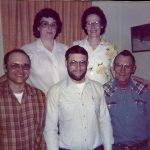
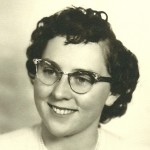 My husband’s aunt, Esther Hein is the middle child of her mom, Vina Hein’s children and the oldest of her dad, Walt Hein’s children. Theirs was a blended family, because Grandma Hein was divorced from her first husband. Sadly, Esther also now finds herself the last of those five siblings. The last of her siblings, Butch Hein was killed in a car accident on October 13, 2023, in Forsyth. As the middle child, I’m sure Esther never expected to be the last of the siblings alive, but now, here she is. Life has not been easy for Esther these past few years. In addition to the health problems Esther has had since Covid started, she has also been dealing with a daughter, Cindy who has been in poor health. That has probably been the hardest thing, because she couldn’t see Cindy much. Cindy’s immune system is compromised, so it is too dangerous. Many people, including me, have been praying over both of them.
My husband’s aunt, Esther Hein is the middle child of her mom, Vina Hein’s children and the oldest of her dad, Walt Hein’s children. Theirs was a blended family, because Grandma Hein was divorced from her first husband. Sadly, Esther also now finds herself the last of those five siblings. The last of her siblings, Butch Hein was killed in a car accident on October 13, 2023, in Forsyth. As the middle child, I’m sure Esther never expected to be the last of the siblings alive, but now, here she is. Life has not been easy for Esther these past few years. In addition to the health problems Esther has had since Covid started, she has also been dealing with a daughter, Cindy who has been in poor health. That has probably been the hardest thing, because she couldn’t see Cindy much. Cindy’s immune system is compromised, so it is too dangerous. Many people, including me, have been praying over both of them.
Esther has always had such a soft heart. Things that happened to people Esther loved, even if they weren’t life threatening, upset her terribly. All she wants is for everyone she loves to be ok. Of course, that is what we all want for our loved ones, but Esther wears her heart on her sleeve. Sometimes, it’s hard to see or hear her be worried about the people she cares about, but then, I guess it’s hard to watch anyone be worried about someone. It is much better to see Esther when she is happy and showing her love for people in the things she makes and does for them. I will never forget how pleased my in-laws, Walt (Esther’s half brother) and Joann Schulenberg were with the things she made them. She made curtains for their bathroom, and several paintings for their living room. They didn’t get to see her very often, because she lives in Oregon, and they lived in Casper, Wyoming, but they did make trips to see her after my father-in-law retired. They visited he for a number of years, but then my mother-in-law was diagnosed with Alzheimer’s Disease, and travel wasn’t so easy anymore. I know my father-in-law missed going to see his sister, and she missed him too.
For Esther, not being able to see her brother and sister-in-law, was maybe worse that other people she didn’t 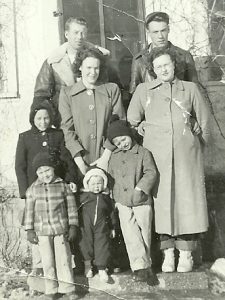
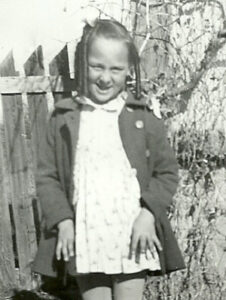 get to see much, because as a little girl, when her brother was already married, Esther lived with them during the winter months. School was very important, and the Montana winters didn’t always make it easy to get Esther into town from the family ranch. The three of them became close, even if Ester had to be told to behave by my mother-in-law a number of times. Kids outgrow the antics of childhood eventually, and then Esther and her sister-in-law just became friends. Those were good times though. I know Esther’s help entertaining her young nieces, Marlyce Schulenberg and Debbie Cook, and maybe nephew Bob Schulenberg was nice for my mother-in-law too. Those would definitely qualify to be called the “good old days” for sure. Today is Esther’s 83rd birthday. Happy birthday Esther!! Have a great day!! We love you!!
get to see much, because as a little girl, when her brother was already married, Esther lived with them during the winter months. School was very important, and the Montana winters didn’t always make it easy to get Esther into town from the family ranch. The three of them became close, even if Ester had to be told to behave by my mother-in-law a number of times. Kids outgrow the antics of childhood eventually, and then Esther and her sister-in-law just became friends. Those were good times though. I know Esther’s help entertaining her young nieces, Marlyce Schulenberg and Debbie Cook, and maybe nephew Bob Schulenberg was nice for my mother-in-law too. Those would definitely qualify to be called the “good old days” for sure. Today is Esther’s 83rd birthday. Happy birthday Esther!! Have a great day!! We love you!!
 When I first heard about the bizarre phenomenon found under the home of Benjamin Franklin, I thought of a few possibilities. The remains, found in 1998, consisted of 1,200 bones are believed to be from more than 15 human bodies found in the basement of Ben Franklin’s house. Six of the bodies were children. My first thought was, “Please tell me that this is some Indian burial site, or that there is some logical explanation as to why there would be bodies buried in this hero Founding Father’s home.” I have always liked Ben Franklin. I found his “antics” to be so interesting. To say the least, he was a bit strange in his experimentations, and that was enough to make me wonder (and hope it wasn’t so) if Ben Franklin could possibly have some horrid alter ego. He wouldn’t be the first scientist to go off the deep end to experiment on human bodies, but then again, there certainly are people today that have chosen to donate their bodies to science, so why couldn’t that be the case back then. I prayed that was the case.
When I first heard about the bizarre phenomenon found under the home of Benjamin Franklin, I thought of a few possibilities. The remains, found in 1998, consisted of 1,200 bones are believed to be from more than 15 human bodies found in the basement of Ben Franklin’s house. Six of the bodies were children. My first thought was, “Please tell me that this is some Indian burial site, or that there is some logical explanation as to why there would be bodies buried in this hero Founding Father’s home.” I have always liked Ben Franklin. I found his “antics” to be so interesting. To say the least, he was a bit strange in his experimentations, and that was enough to make me wonder (and hope it wasn’t so) if Ben Franklin could possibly have some horrid alter ego. He wouldn’t be the first scientist to go off the deep end to experiment on human bodies, but then again, there certainly are people today that have chosen to donate their bodies to science, so why couldn’t that be the case back then. I prayed that was the case.
At this point, many people would immediately assume that Ben Franklin was some kind of closet killer, who tortured and murdered his victims. It would be thought that the world had been so naive, that we lived in the dark for years, but before you go crafting a murder mystery about him, please be aware that it was revealed that the bodies were used in the study of human anatomy. So, it actually was bodies donated for scientific 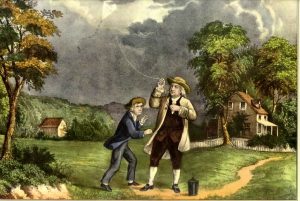 research. I certainly didn’t know that they did that sort of thing back then, but it seems that they did.
research. I certainly didn’t know that they did that sort of thing back then, but it seems that they did.
The house, located in London, England was undergoing some conservation work in 1998, when the bones were discovered. Some of the bodies were dismembered, or had trepanned skulls, which is skulls with holes drilled through them. Ben Franklin had lived home in London for nearly twenty years leading up to the signing of the Declaration of Independence. It was more than 200 years later, when the conservation work uncovered the 15 bodies in the basement, buried in a secret, windowless room beneath the garden. While on could imagine horrible things, “The most plausible explanation is not mass murder, but an anatomy school run by Benjamin Franklin’s young friend and protege, William Hewson.” So, it would seem that Ben Franklin either loaned the home to Hewson (a surgeon), stored the bodies for Hewson, or allowed Hewson to do his scientific experiments in the room in the Franklin house. Whatever the case may be, it is apparently well enough documented that the authorities were satisfied that Ben Franklin wasn’t personally involved.
One such speculation was that “Anatomy was still in its infancy, but the day’s social and ethical mores frowned upon it. … A steady supply of human bodies was hard to come by legally, so Hewson, Hunter, and the field’s other pioneers had to turn to grave robbing—either paying professional ‘resurrection men’ to procure cadavers 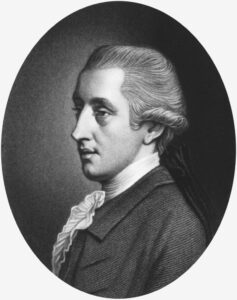 or digging them up themselves—to get their hands on specimens. Researchers think that 36 Craven was an irresistible spot for Hewson to establish his own anatomy lab. The tenant was a trusted friend, the landlady was his mother-in-law, and he was flanked by convenient sources for corpses. Bodies could be smuggled from graveyards and delivered to the wharf at one end of the street or snatched from the gallows at the other end. When he was done with them, Hewson simply buried whatever was left of the bodies in the basement, rather than sneak them out for disposal elsewhere and risk getting caught and prosecuted for dissection and grave robbing.” Some people speculate that Ben Franklin knew about the goings on, but was not personally involved, still, they thought he might have gone to the lab a few times to check out the proceedings. I hate to think that he knew anything about it, and I would prefer to think that the study of anatomy was done in his absence, but I suppose that our modern-day anatomy studies and autopsies were probably pioneered in a basement somewhere.
or digging them up themselves—to get their hands on specimens. Researchers think that 36 Craven was an irresistible spot for Hewson to establish his own anatomy lab. The tenant was a trusted friend, the landlady was his mother-in-law, and he was flanked by convenient sources for corpses. Bodies could be smuggled from graveyards and delivered to the wharf at one end of the street or snatched from the gallows at the other end. When he was done with them, Hewson simply buried whatever was left of the bodies in the basement, rather than sneak them out for disposal elsewhere and risk getting caught and prosecuted for dissection and grave robbing.” Some people speculate that Ben Franklin knew about the goings on, but was not personally involved, still, they thought he might have gone to the lab a few times to check out the proceedings. I hate to think that he knew anything about it, and I would prefer to think that the study of anatomy was done in his absence, but I suppose that our modern-day anatomy studies and autopsies were probably pioneered in a basement somewhere.

 In the days, and even months, leading up to Christmas, most people are trying to get ahead of the game by shopping for gifts for family and friends, and then squirreling them away to await the big day of reveal. We all hope we have found that perfect gift for our loved ones…that gift that tells them how much we love them. Some people are very crafty (a skill I have mastered…a few times, but not too many). Those who are crafty find themselves able to give that unique gift that comes from both the heart and the hand. Still, every gift sent from the heart is loved and is a blessing.
In the days, and even months, leading up to Christmas, most people are trying to get ahead of the game by shopping for gifts for family and friends, and then squirreling them away to await the big day of reveal. We all hope we have found that perfect gift for our loved ones…that gift that tells them how much we love them. Some people are very crafty (a skill I have mastered…a few times, but not too many). Those who are crafty find themselves able to give that unique gift that comes from both the heart and the hand. Still, every gift sent from the heart is loved and is a blessing.
While the gifts are a blessing and something we want to give, they are, nevertheless, a big job, that grows bigger as our families grow. Still, would we want our families not to grow. Of course not!! Each new person is a blessing, and each is very loved. Still for those of us doing the Christmas shopping, trying to get ideas without giving ourselves away, and trying to keep those gifts hidden, it is not a project without a little bit of stress…especially as Christmas draws nearer and nearer. Oh, and don’t forget the monumental job of wrapping all those gifts. I was commenting to my daughter, Amy Royce, that wrapping was something I was going to have to “make myself” do, and she told me to wrap them as I get them!! Oh, to be so organized, hahahaha!!!
Most of us put up our Christmas decorations shortly after Thanksgiving, but there are those who can’t wait that 
 long. They might put their decorations up right after Halloween. I don’t think I would go that far, but it doesn’t really matter, either way, decorating is a big job…even for those who love it. Some people have kids to help, or grandkids who come and help. That makes it easier, but others do their own decorations. No matter how you decorate, most of us are just happy to have the decorating done…while trying not to think about the work ahead of us when it’s time to take it all down again.
long. They might put their decorations up right after Halloween. I don’t think I would go that far, but it doesn’t really matter, either way, decorating is a big job…even for those who love it. Some people have kids to help, or grandkids who come and help. That makes it easier, but others do their own decorations. No matter how you decorate, most of us are just happy to have the decorating done…while trying not to think about the work ahead of us when it’s time to take it all down again.
Now, we have arrived at the big day…whether you open gifts on Christmas Eve, or Christmas Day, or a combination of both. We hope our gifts are well received, loved, and not duplicated. Even if they are duplicated, it’s not the worst thing to happen. They can be exchanged, so all is well. Everything that has to do with Christmas has been done…or has it. So often, the real reason for the season…the birth of Jesus, is all but forgotten. How sad that is!! We focus more on Christmas movies, shopping, Santa Clause, and the Grinch, than we do on Jesus. There is nothing wrong with those other things, but we really need to know that the true reason for the season (whether Jesus was born in December or some other time of year) is to remember that God looked down on this messed up world and saw the family that He loved. He knew that we were lost, and 
 without a Savior, doomed to Hell. That’s when He devised a plan to save us. He sent His Son, Jesus to be born a baby, grow to manhood, and then die on the cross as a sinless sacrifice for us!! We weren’t worthy, but like any Father, who loves his children, God chose to buy us back, and Jesus was the payment!! How can we possibly go through this season without remembering the birth and sacrifice of our blessed Savior. Remember the reason for the season!! Merry Christmas everyone!!
without a Savior, doomed to Hell. That’s when He devised a plan to save us. He sent His Son, Jesus to be born a baby, grow to manhood, and then die on the cross as a sinless sacrifice for us!! We weren’t worthy, but like any Father, who loves his children, God chose to buy us back, and Jesus was the payment!! How can we possibly go through this season without remembering the birth and sacrifice of our blessed Savior. Remember the reason for the season!! Merry Christmas everyone!!
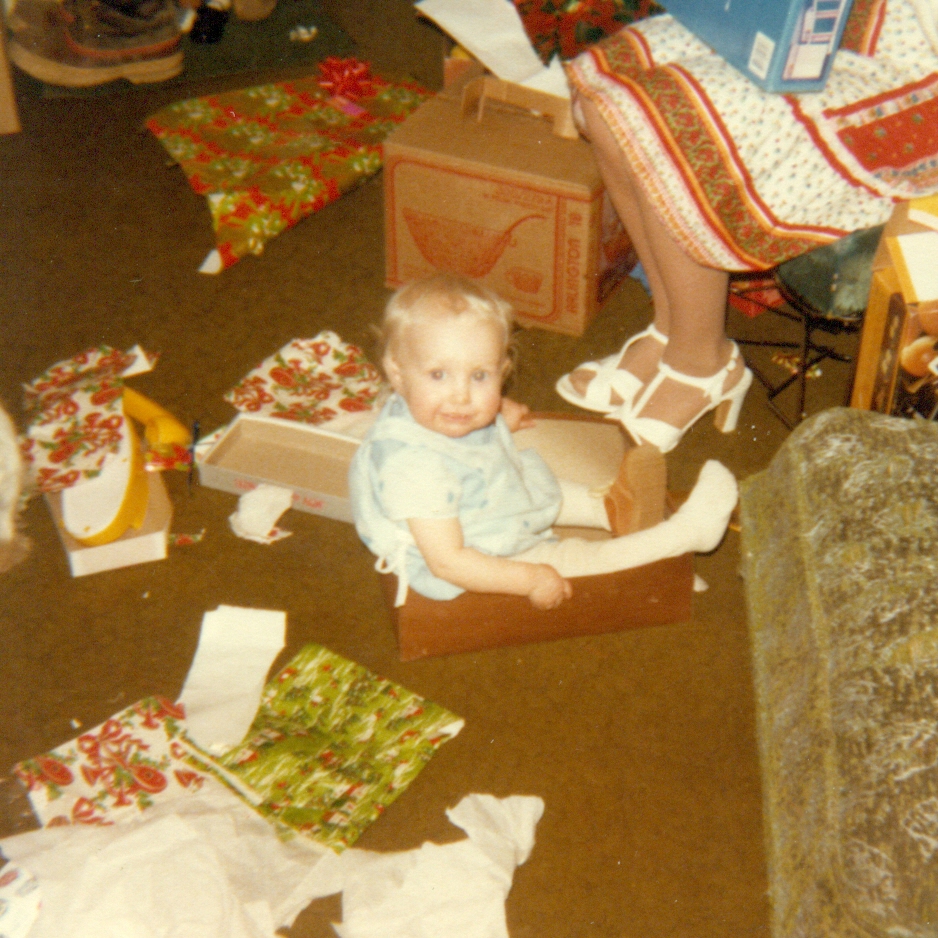
 Christmas Eve is filled with many and varied traditions. Some families have a special family dinner on Christmas Eve…things that might not normally be considered “Christmas fare.” The Schulenberg tradition was always chili on Christmas Eve. Later, that evolved to include Lasagna. At first, when I married into the family, I thought the idea was totally odd, but we still do it to this day, and I can’t imagine Christmas Eve any other way. Apparently, we aren’t the only ones to make chili either, because I heard a friend at church talking about the same thing today. Let’s be real, chili is always a hit, as is Lasagna.
Christmas Eve is filled with many and varied traditions. Some families have a special family dinner on Christmas Eve…things that might not normally be considered “Christmas fare.” The Schulenberg tradition was always chili on Christmas Eve. Later, that evolved to include Lasagna. At first, when I married into the family, I thought the idea was totally odd, but we still do it to this day, and I can’t imagine Christmas Eve any other way. Apparently, we aren’t the only ones to make chili either, because I heard a friend at church talking about the same thing today. Let’s be real, chili is always a hit, as is Lasagna.
For many years, my family got to open one gift on Christmas eve, and then everything else was Christmas day. 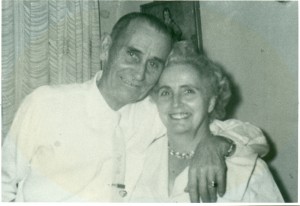 Then, I incorporated the stockings into Christmas eve. Bob’s family always opened their gifts on Christmas, and then my family always did Christmas morning. That worked well, but as the family has grown, my family has a Christmas party a week or two before Christmas, and this year, because we have so many families, we opened ours today. It worked so well, and everyone had a great time.
Then, I incorporated the stockings into Christmas eve. Bob’s family always opened their gifts on Christmas, and then my family always did Christmas morning. That worked well, but as the family has grown, my family has a Christmas party a week or two before Christmas, and this year, because we have so many families, we opened ours today. It worked so well, and everyone had a great time.
Some people, like my grandparents, George and Hattie Byer, decided that Christmas eve was the perfect day for a wedding. That wasn’t so uncommon back in 1927, and especially in the years of the “Old West” when travel wasn’t so easy, people would plan weddings around times when family was always gathered for other events. It made sense, because their relatives were already there, so no additional planning was necessary, with the exception of adding a cake and a preacher to the mix. We always thought it was very cool that 
 Grandma and Grandpa celebrated their many years of wedded bliss on Christmas eve.
Grandma and Grandpa celebrated their many years of wedded bliss on Christmas eve.
I believe that how the day is celebrated is not so important as is having your family around to celebrate it. Of course, families can’t always be together to celebrate Christmas eve, or Christmas day, so the main thing is to take plenty of pictures and pass them back and forth. That was, everyone gets to share in the special moments. That’s how love is shown. Merry Christmas Eve everyone!! I pray that your holiday is great.
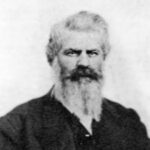 Politics can be a touchy subject. Many arguments have come from political disagreements, and in fact, a number of actual fights and even wars have been fought over political disagreements. The Civil War was one sch war fought over political views. During that time there were also a number of private disputes as well. Sumner Pinkham was in volved on one of those disputes. Sumner Pinkham was born in 1820 in the state of Maine and was raised in Wisconsin. Very little, if anything, is known about his early life. He married Laurinda Maria Atwood in Nebraska on November 4, 1842. In 1849, Pinkham joined the California gold rush and then spent time in Oregon before making his way to the booming gold rush camp of Idaho City in 1862. Pinkham was a big man…powerfully built, who stood six feet two inches tall and had a barrel chest. He was also prematurely gray, making him look older than he really was.
Politics can be a touchy subject. Many arguments have come from political disagreements, and in fact, a number of actual fights and even wars have been fought over political disagreements. The Civil War was one sch war fought over political views. During that time there were also a number of private disputes as well. Sumner Pinkham was in volved on one of those disputes. Sumner Pinkham was born in 1820 in the state of Maine and was raised in Wisconsin. Very little, if anything, is known about his early life. He married Laurinda Maria Atwood in Nebraska on November 4, 1842. In 1849, Pinkham joined the California gold rush and then spent time in Oregon before making his way to the booming gold rush camp of Idaho City in 1862. Pinkham was a big man…powerfully built, who stood six feet two inches tall and had a barrel chest. He was also prematurely gray, making him look older than he really was.
Pinkham was a conservative Republican, a Unionist, and an abolitionist, which put him on the opposite side of the majority of Boise Basin mining camps political views, which were predominantly Democrat. When Pinkham arrived in the Idaho City area, Idaho was still a part of Washington Territory, and the Boise Basin was located in Idaho County, of which Florence was the county seat. Florence was located a way away from the new mining basin, so the Washington Legislature established Boise County on January 29, 1863.
After being in the area for a while, and becoming known for his political views, the Governor of Washington was assigning commissioners and officers to the newly established county, and Pinkham was one of them, assigned to serve as the County Sheriff. On March 4, 1863, Congress created Idaho Territory. At that time Boise County exceeded the other counties in both area and in population. Those in office in Boise County at the time, including Pinkham, retained their positions until the territorial government could be officially organized. Pinkham appointed Orlando “Rube” Robbins, who shared his political opinions, as his deputy in August 1863. Robbins would later make himself known as one of Idaho’s greatest lawmen.
By this time, the Civil War was raging back East, and the area miners began to choose sides, around the Union and Confederate causes. This, dueled with whiskey, caused flair-ups between North and South sympathizers, bring with it fist fights, knife fights, and sometimes gun battles as they used force to show their opinions. That kept both Pinkham and his deputy, Rube Robbins, busy breaking up fights and locking up drunken loudmouths as they threatened to fight it out…to the death. The area being predominately Democrat often placed Pinkham at odds with his constituents due to his staunch Unionist views, Republican politics, and tough law enforcement. His list of enemies grew. Nevertheless, both Pinkham’s enemies and his most loyal friends knew that he was a man they shouldn’t mess with when he undertook to enforce the law, which he did with an iron hand.
His greatest enemy was a Southern gunfighter named Ferdinand “Ferd” Patterson. On one occasion, while Patterson was partying with some of his friends in Idaho City, they took unlawful possession of a brewery in Idaho City. Sheriff Pinkham was called by the owner to remove the rowdy group. When Pinkham entered the brewery, he was met with violent resistance. Pinkham and Patterson immediately hated each other. Patterson was Southerner who was crooked by nature, and Pinkham was a Northerner who tended to be self-righteous. In the end, Pinkham was successful, and Patterson was arrested. When Pinkham lost his October 1864 for re-election as Boise County Sheriff, in a bitter contest between the Democratic successionists and Republican candidates. Pinkham was defeated by A O Bowen by a comfortable majority, and Patterson celebrated, as the last of the ballots were being counted. When Patterson encountered his old nemesis, he began rubbing it in. Pinkham, who was in a rage, swung at Patterson, hitting him in the jaw and throwing the gambler off the street and into the gutter. After that, Pinkham walked away. Everyone expected Patterson to retaliate, but he let it go…for then. Pinkham left Idaho City, following the lost election, heading to Illinois to visit his dying mother. When he returned in 1865, everyone figured they would have it out, but it didn’t happen then either.
After the Civil War ended, Pinkham held a huge Fourth of July party. The crowds were mostly festive, with fireworks blazing and booze abundant. The celebration included a brass band, speeches, patriotic songs, a picnic, and a parade with Pinkham leading the way through town. For the victorious Yankees, it was a proud day. But, for the sullen Confederate sympathizers…not so much. To make matters worse, the Yankee’s heckled the “Blue Bellies” throughout the day. Patterson was furious as he watched Pinkham leading the parade through town. Pinkham singing, “Oh, we’ll hang Jeff Davis to a sour apple tree!” was the last straw. Patterson yelled out to the ex-sheriff that if “he didn’t shut his mouth, he’d shut it for him.” Pinkham invited him to try, and he did. A brief fist fight between the two men resulted in the flag falling into the dust of the street. Some witnesses swore they saw Patterson spit on it, and others attested they heard Pinkham swear he would kill Patterson for that, but nothing more came of it at that time. Several weeks later, on Sunday, July 23rd, Pinkham took a hired carriage from Idaho City to the Warm Springs Resort, which was about two miles west of town. Upon his arrival, Pinkham joined a number of his Unionist friends in the saloon, where they were heard singing patriotic and anti-Confederate songs.
Sometime later, Patterson entered the resort while Pinkham was paying his bill. Initially, Patterson ignored Pinkham, but by the time the ex-sheriff exited the resort, Patterson was outside waiting for him. Patterson said the word “draw” and then taunted Pinkham by calling him an “Abolitionist son-of-a-b***h.” Who drew first is in dispute, but in the end, Pinkham was dead. Patterson quickly fled but was immediately followed by several lawmen. Rube Robbins was the first to catch up to him, about 14 miles from Idaho City. Patterson surrendered to Robbins, who turned the killer over to Sheriff Bowen, who was next on the scene. Bowen and his men took over and escorted Patterson back to Idaho City.
A mob wanted to lynch him, and maybe that would have been justice, because in the “sham” trial held in a predominately Democrat area, Patterson was acquitted, and with that, justice for Pinkham would never be served. Ferd Patterson was tried for Pinkman’s murder at the beginning of November 1865. In the six-day trial, defense attorney Frank Ganahl claimed his client acted in self-defense, arguing that Pinkham was lying in wait 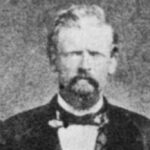 for him. Alternatively, Pinkham’s friends testified that he tried to avoid a showdown and that Patterson came to Warm Springs with the explicit purpose of murdering Pinkham. It took only an hour and a half for the jury to acquit Patterson. Pinkham’s funeral was the largest and most impressive funeral ever seen in the mining camp. It was reported that over 1,500 mourners followed his hearse to the graveyard. Meanwhile, knowing he was in extreme danger, Patterson quickly fled Idaho City after his acquittal. He was killed in Walla Walla, Washington, the next year, by Thomas Donahue, an area policeman, in was thought by many to be an assassination. Donahue was charged with the murder of Patterson, but escaped from jail while awaiting trial. There apparently was little interest in tracking him down. He disappeared never to be heard from again.
for him. Alternatively, Pinkham’s friends testified that he tried to avoid a showdown and that Patterson came to Warm Springs with the explicit purpose of murdering Pinkham. It took only an hour and a half for the jury to acquit Patterson. Pinkham’s funeral was the largest and most impressive funeral ever seen in the mining camp. It was reported that over 1,500 mourners followed his hearse to the graveyard. Meanwhile, knowing he was in extreme danger, Patterson quickly fled Idaho City after his acquittal. He was killed in Walla Walla, Washington, the next year, by Thomas Donahue, an area policeman, in was thought by many to be an assassination. Donahue was charged with the murder of Patterson, but escaped from jail while awaiting trial. There apparently was little interest in tracking him down. He disappeared never to be heard from again.

 After it rains, most of us notice a distinctive refreshing smell that lingers in the air for a while. The strange thing is that most of the time, we didn’t notice that there was a bad odor in the air, but when we walk through a rainstorm, or just step outside after it has rained, slowly hits us…that fresh, earthy smell. There is no way to say exactly what it smells like, because it’s a smell like no other smell I know…it just smells like rain. Strangely, before it hits the ground, rain is just water. It has no smell at all.
After it rains, most of us notice a distinctive refreshing smell that lingers in the air for a while. The strange thing is that most of the time, we didn’t notice that there was a bad odor in the air, but when we walk through a rainstorm, or just step outside after it has rained, slowly hits us…that fresh, earthy smell. There is no way to say exactly what it smells like, because it’s a smell like no other smell I know…it just smells like rain. Strangely, before it hits the ground, rain is just water. It has no smell at all.
The big change happens after it hits the ground, and it might shock you to find out what the cause of that wonderful transformation actually is. After the drops hit the ground and interact with dirt, the fresh and almost sweet fragrance of rain is let go. Now, as near as the scientists have been able to determine, they believe they’ve identified the exact mechanism that releases this aroma into the environment. The smell actually has a name. It’s called “Petrichor” and comes from the Greek words “Petra” or “stone” and “ichor” or a fluid that flows like blood in veins. The phenomenon was first characterized (as the familiar smell after a light rain) by two Australian scientists in 1964, but until now, researchers didn’t understand the physical mechanism behind it.
There are actually several causes for this, and this is where it gets a little…well, creepy…maybe. The most common is a bacteria called Actinomycetes, which is a filamentous type of bacteria that’s smells more strongly in woodland or areas with soil where it grows when it’s damp and warm. When the bacteria dries, spores are produced and that is what we can smell, because the force of the rainfall disperses the spores into the air, rather like an aerosol air freshener. The smell produced by these spores is a kind of earthy, refreshing smell. It’s most noticeable when it rains after a long spell of dryness, but will still occur after most instances of rainfall. Now, I suppose we could become grossed out, but there is nothing we can do about it, so we might as well just enjoy the smell. Besides that, there are bacteria, spores, and pollen in the air we breathe all the time, so it’s not like this is some “new assault” on our systems. There are also more triggers for smells after 
 rainstorms. One such trigger is acidity caused by chemicals in the atmosphere, which mostly occurs in heavy urban areas. Another smell that’s common and very similar to actinomycetes, and has even been bottled and sold, is from the evaporative oils that plants and trees produce. That probably doesn’t turn our stomachs quite as much, so if the idea of bacteria bothers you, just make up your mind to believe that the smell comes from evaporative plant oils, and you should feel better about it.
rainstorms. One such trigger is acidity caused by chemicals in the atmosphere, which mostly occurs in heavy urban areas. Another smell that’s common and very similar to actinomycetes, and has even been bottled and sold, is from the evaporative oils that plants and trees produce. That probably doesn’t turn our stomachs quite as much, so if the idea of bacteria bothers you, just make up your mind to believe that the smell comes from evaporative plant oils, and you should feel better about it.

